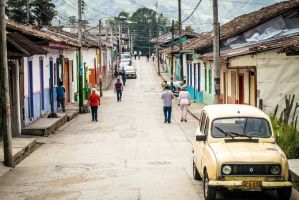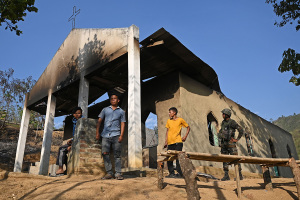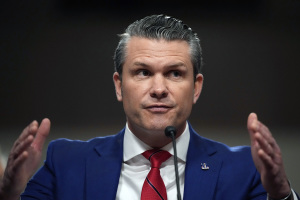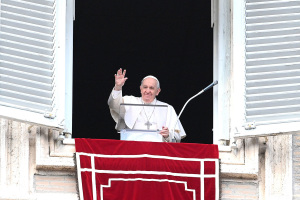Sudanese authorities ban Christians from attending worship service: Not allowed in 'Muslim areas'
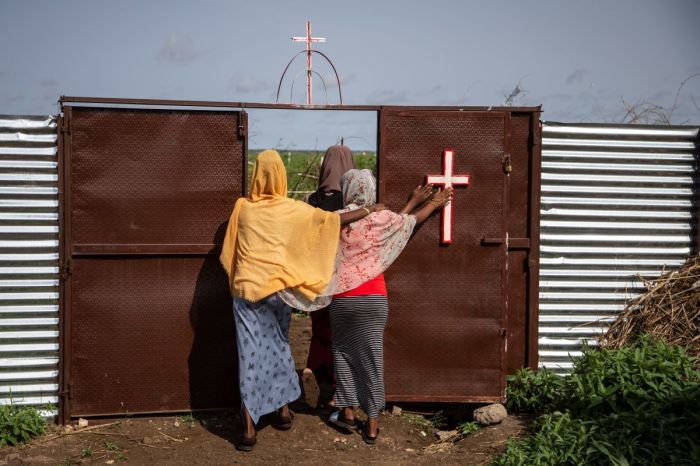
JUBA, South Sudan — Authorities in Sudan prevented Christians internally displaced by war from celebrating Christmas in a park where they had taken refuge, sources said.
In Northern state’s town of Wadi Halfa, the internally displaced Christians were shocked when security officials at the park where they had set up make-shift shelters told them they needed permission to hold their Christmas service, contrary to what National Security authorities had told them previously, said Pastor Mugadam Shraf Aldin Hassan of United Church of Smyrna.
Security officials at the park told the church that Christian activities were not allowed in Muslim areas without a prior written approval, an area source said.
The church on Dec. 21 had asked for permission to celebrate Christmas in the park, and an official had given verbal approval but instructed them to refrain from using microphones and other sound system equipment, Pastor Hassan said.
On the day of the celebration, however, security officials demanded written approval, he added.
Authorities ordered him and another pastor to report to a military special forces office where they were interrogated and their notebooks searched, he said.
To obtain written approval, the church wrote three letters — one from an inter-church committee in Wadi Halfa and the two from the United Church of Smyrna — seeking permission to hold a Christmas service, sing Christmas carols and celebrate the New Year, but authorities did not respond, Hassan said.
Sudan is a signatory to the International Convention on Civil and Political Rights, and Christian attorney and human rights advocate Shinbago Mugadum said authorities’ demand for permission contravened Article 18 of the ICCPR on the right to freedom of thought, conscience and religion. The ICCPR’s Article 21 provides for the right to peaceful assembly.
“The government of Wadi Halfa should be fair to all religions,” Mugadum told Morning Star News, calling upon authorities to refrain from harassing Christians.
Since April 2023 militants of the paramilitary Rapid Support Forces (RSF), have been battling the Sudanese Armed Forces (SAF), and each Islamist force has attacked displaced Christians on accusations of supporting the other’s combatants.
The conflict between the RSF and the SAF, which had shared military rule in Sudan following an October 2021 coup, has terrorized civilians in Khartoum and elsewhere, killing tens of thousands and displacing more than 12.36 million people within and beyond Sudan’s borders, according to the U.N. Commissioner for Human Rights (UNCHR).
The SAF’s Gen. Abdelfattah al-Burhan and his then-Vice President, RSF leader Mohamed Hamdan Dagalo, were in power when civilian parties in March 2023 agreed on a framework to re-establish a democratic transition the next month, but disagreements over military structure torpedoed final approval.
Burhan sought to place the RSF — a paramilitary outfit with roots in the Janjaweed militias that had helped former strongman Omar al-Bashir put down rebels — under the regular army’s control within two years, while Dagolo would accept integration within nothing fewer than 10 years.
Both military leaders have Islamist backgrounds while trying to portray themselves to the international community as pro-democracy advocates of religious freedom.
In Open Doors’ 2024 World Watch List of the countries where it's most difficult to be a Christian, Sudan was ranked No. 8, up from No. 10 the previous year, as attacks by non-state actors continued and religious freedom reforms at the national level were not enacted locally.
Sudan had dropped out of the top 10 for the first time in six years when it first ranked No. 13 in the 2021 World Watch List.
Following two years of advances in religious freedom in Sudan after the end of the Islamist dictatorship under Bashir in 2019, the specter of state-sponsored persecution returned with the military coup of Oct. 25, 2021.
After Bashir was ousted from 30 years of power in April 2019, the transitional civilian-military government had managed to undo some Sharia (Islamic law) provisions. It outlawed the labeling of any religious group “infidels” and thus effectively rescinded apostasy laws that made leaving Islam punishable by death.
With the Oct. 25, 2021, coup, Christians in Sudan feared the return of the most repressive and harsh aspects of Islamic law. Abdalla Hamdok, who had led a transitional government as prime minister starting in September 2019, was detained under house arrest for nearly a month before he was released and reinstated in a tenuous power-sharing agreement in November 2021.
Hamdock had been faced with rooting out longstanding corruption and an Islamist “deep state” from Bashir’s regime — the same deep state that is suspected of rooting out the transitional government in the Oct. 25, 2021, coup.
The U.S. State Department in 2019 removed Sudan from the list of Countries of Particular Concern (CPC) that engage in or tolerate “systematic, ongoing and egregious violations of religious freedom” and upgraded it to a watch list. Sudan had previously been designated as a CPC from 1999 to 2018.
In December 2020, the U.S. State Department removed Sudan from its Special Watch List.
The Christian population of Sudan is estimated at 2 million, or 4.5% of the population of more than 43 million.
This article was originally published at Morning Star News
Morning Star News is the only independent news service focusing exclusively on the persecution of Christians. The nonprofit's mission is to provide complete, reliable, even-handed news in order to empower those in the free world to help persecuted Christians, and to encourage persecuted Christians by informing them that they are not alone in their suffering.
















